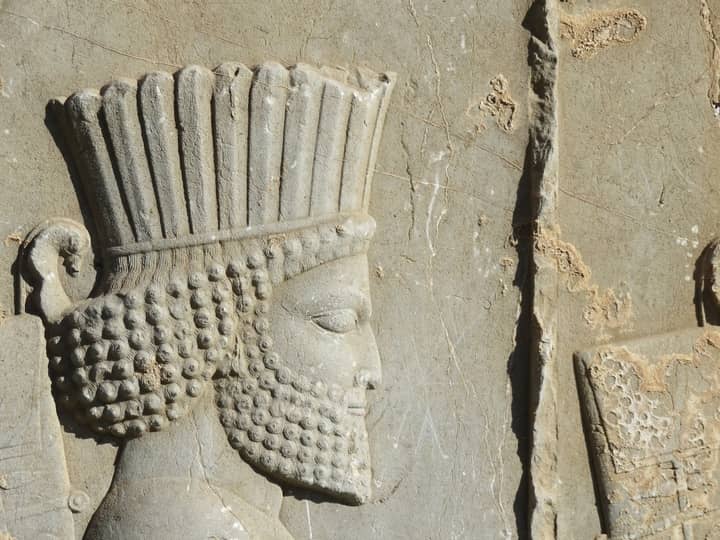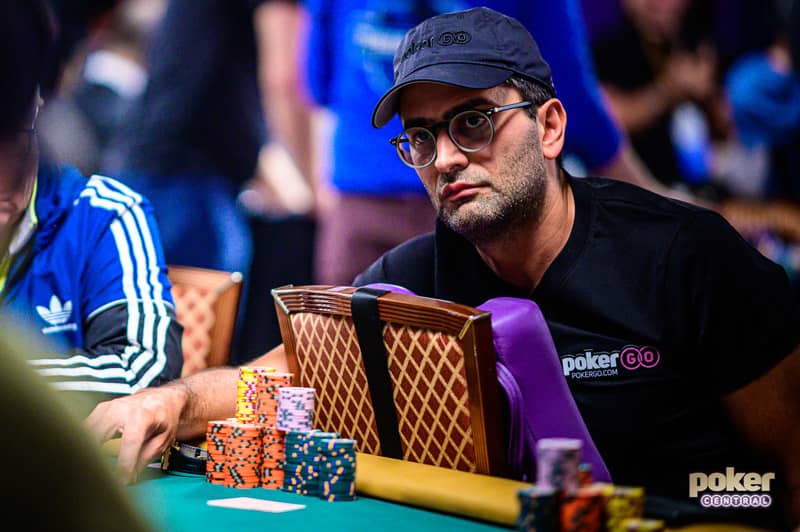Poker Origins – Who Invented Poker As We Know It Today?

7 minutes
Last Updated: March 19, 2024
Poker Origins – Who Invented Poker As We Know It Today?
Images from Pixabay
Poker is one of the best-known and most popular card games in the world, with millions of people playing the game online and in live settings. On top of poker rooms, there are many poker training courses helping people improve and other parts of this industry.
Poker has become a lucrative industry, with more than $1 billion generated in revenue each year.
It is hard to believe that poker’s success has only been apparent over the last twenty years.
The internet made it into the global game it is today, while it was a niche pastime in the pre-online era.
Many players could detail the recent history of the game and how it evolved online, but few may be aware of its origins in the past. There is some speculation that it could have begun in the 16th century as a game called As-Nas.
Is Poker Based on 16th Century Persian Card Game?

With card games that have been around for countless generations, it can often be hard to trace them back to their precise roots. Longstanding pastimes tend to evolve and morph over time, and this has certainly happened with poker.
Indeed, modern players can see it happening as we speak with newer, fast-paced mobile options cropping up with increasing frequency and changing the way people view poker.
Poker itself can’t just be confined to one definition, either.
Yes, the general poker rules, as well as poker hands rankings, tend to be the same across the board, but there are countless variations on how to play the game.
Texas Hold’em is currently the most popular strain, but Stud poker was far more prevalent in pre-internet days.
The poker we know of today was probably influenced by a vast number of games, with historians speculating over which age-old pastimes served as the biggest inspiration to the game of bluffing and deception.
There is a lot of evidence, however, to suggest that a 16th-century Persian offering may have had a huge effect on developing the game we know and love today.
As-Nas was a Persian card game dating back to the 16th Century, making it one of the earliest games of playing cards known to man.
Before this, there were more ancient options like Ganjifa (shown in the video below), but these were among the first offerings to share a resemblance to the cards and decks we know of today.
The game used a 25-card deck with five suits, and each suit had one court card and four numeral cards.
The cards didn’t have numbers on them, but their value was recognized based on the picture.
The various pictures included the Ace, the King, the Lady, and the Soldier, with the lowest value card being a dancing girl or a musician.
According to 19th Century scholar in Persian culture, Albert Houtum-Schindler, the game of As-Nas was played exactly like poker in that players have to stake on their cards and try to win the pot.
The main difference was that the game didn’t feature flush or straight and was limited to four players.
The hands in As-Nas from best to worst were:
- full house
- trips
- two pairs
- one pair
From these hands, it is easy to see that poker may well have been directly influenced by the Persian game. Indeed, As-Nas also featured bluffing, which is an important facet of modern-day poker.
Other Games May Have Had an Influence On Poker Origin
After hearing the description of As-Nas, many poker players will be ready to believe that the Persian game was one of poker's main influences.
It is hard to argue with the fact that this game used the hands we know of in today’s poker strains way before poker used them. However, that doesn’t mean to say that poker didn’t draw influences from elsewhere as well.
The fact that As-Nas was limited to a number of players and the lack of the straight and flush suggests that these ideas could have come from elsewhere.
Some historians have even challenged the idea that poker is a direct descendant of As-Nas.
One of the biggest alternative theories about poker's origin is that it came about from the French game known as Poque, which was played in the same area at which poker is said to have started.
The modern game could have taken its name from the French offering certainly, as that title descended from the German, pochen, which means to brag or to bluff.
There are other games such as primero, brelan, and brag, which could have influenced poker because of the focus on bluffing within them.
However, some have argued that the actual card play in these older games is irrelevant, as poker has its own betting mechanisms that weren’t seen in any other game that came before it. This could have all begun in the USA in the mid-18th Century.
Poker Became the Game It Is Today in the USA

While there is a lot of disagreement over the exact way that poker came about, there is little dispute over the fact that it became the game it is today while traveling across the USA over the last few centuries.
The game, which shares the most common elements with today’s poker, spread across the United States' Mississippi River region throughout the late 18th and early 19th Centuries.
At this time, it was played in many different forms. Sometimes players used the 52-card deck format, which is known today, usually when a few different people were taking part.
Between two players, though, the game would take place using only 20 cards. In addition to these variations, players would rarely stick to just one form of poker.
Poker developed during the early 1800s as the commercial gambling scene in the USA was beginning to grow. The game spread around and reached more people because it was commonly played on Mississippi riverboats.
This helped it reach the north during the gold rush. At this point, the 52-card deck became the common standard, and the flush and straight were introduced in the game.
Throughout the 19th century, the general rules were established and helped give the game its identity, which was standardized regardless of the variant of poker being played.
In 1925, community poker games like Texas Hold’em came about using the same principles.
Poker Origins Make It Accessible to a Wider Demographic
Until the internet poker boom in the 2000s, the USA pretty much owned the game that it had developed over the two hundred years before the world-changing event.
But when poker went online, it became accessible to people all over the world.
Poker attracts many players because it is enjoyable and easy to play.
However, there are other ways that poker can be marketed.
Indeed, some operators have realized that a good way to break into countries where fewer people play poker is to help them realize the game’s rich history.
The fact that poker could have originated in a number of different countries means that a wide demographic of players feel an affinity towards it.
In fact, the belief that it was influenced by As-Nas could be one of the reasons why poker is becoming more popular in Arabic countries. Evidence for this rise in popularity can be found in the abundance of online poker sites in the region.
There are so many sites cropping up that players turn to review sites that recommend the best Arabic online poker sites and provide information on the many variants available.
Some of the world’s best poker players have Middle Eastern roots, which is helping to influence younger generations in the region.
The best-known poker expert of Arabic heritage is Antonio Esfandiari.

Source: pokercentral.com
The player known as The Magician was born in Iran and lived there until he was nine years old. He has been a regular on poker television shows and has won the World Poker Tour on two occasions.
Farzad Bonyadi is another Iranian who moved to the USA and became a world-renowned poker player. There are a number of Lebanese players such as Sammy Farha and Joe Hachem, who have also helped give belief to players emerging from Arabic countries.
When it comes to the origins of poker, there isn’t a definitive answer. This is because card games have been played in cultures all over the world throughout the history of poker, and a lot of them share similar aspects.
There is no doubt that As-Nas does appear to be an early form of poker. However, it can’t be confirmed whether those who played the game on the Mississippi riverboats that transformed into the poker of today knew anything about the 16th-century Persian offering.
Indeed, the early poker players could have simply come up with the idea on their own. In that case, it could just simply be a coincidence that As-Nas is so similar.


















